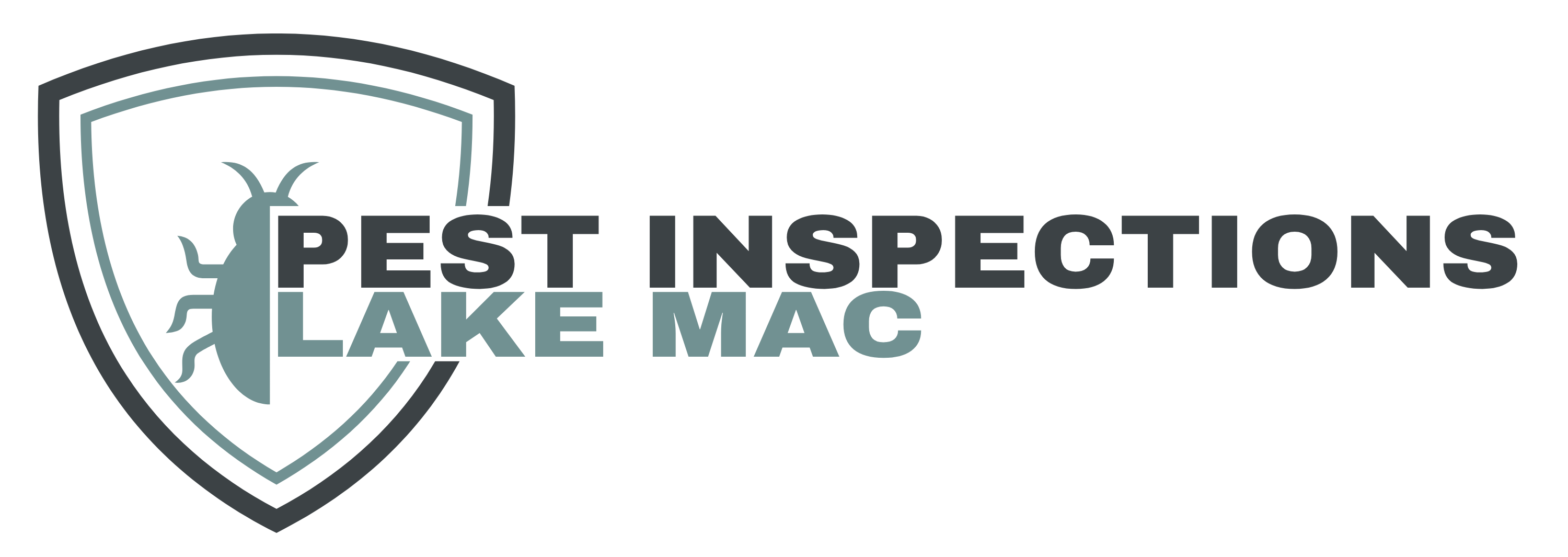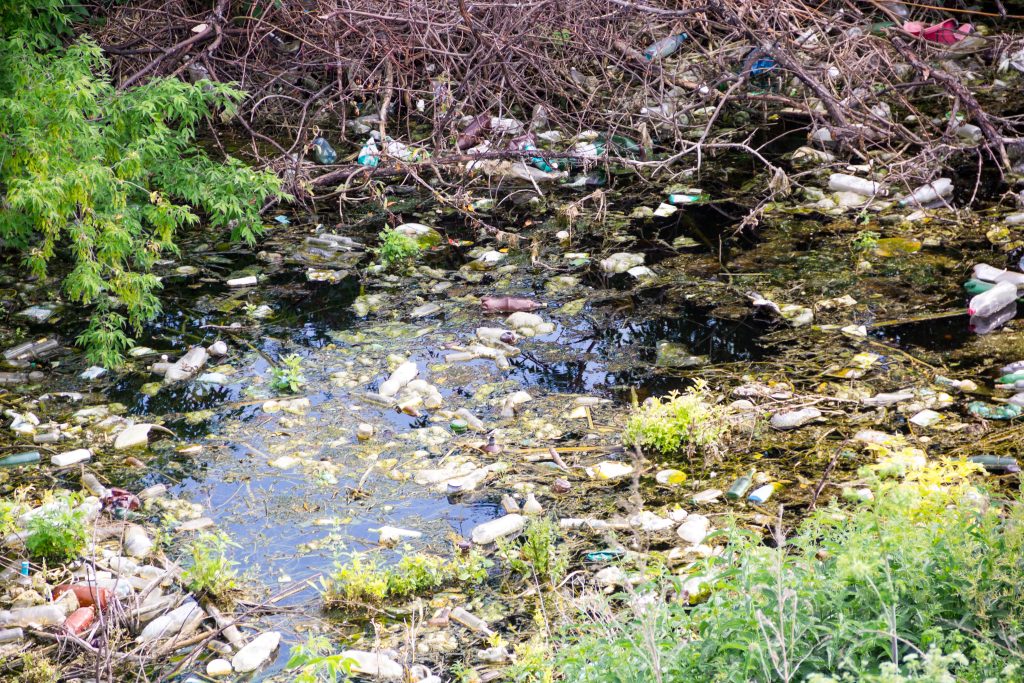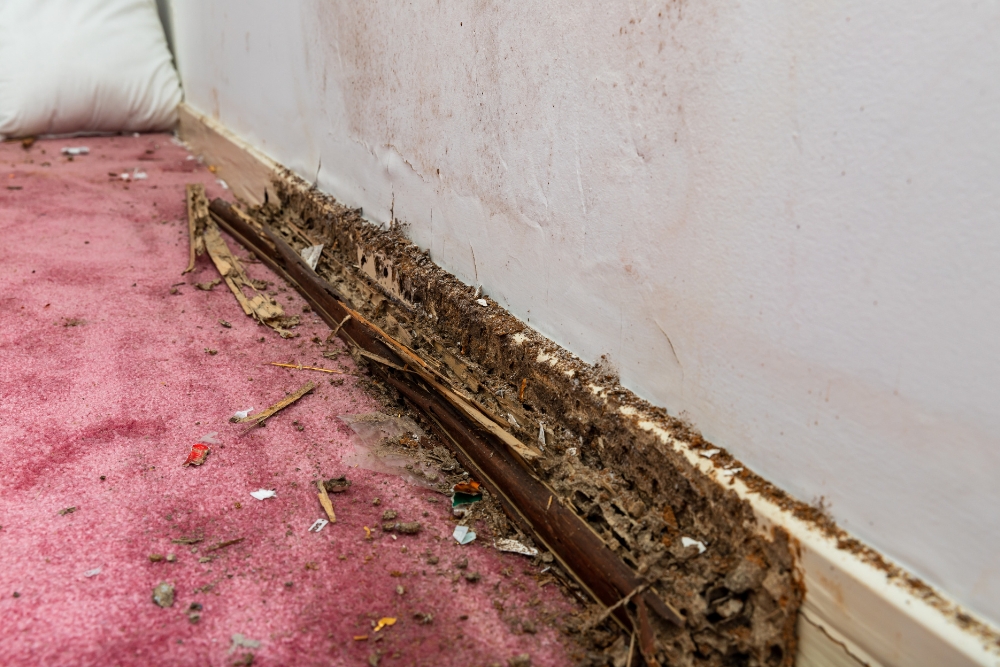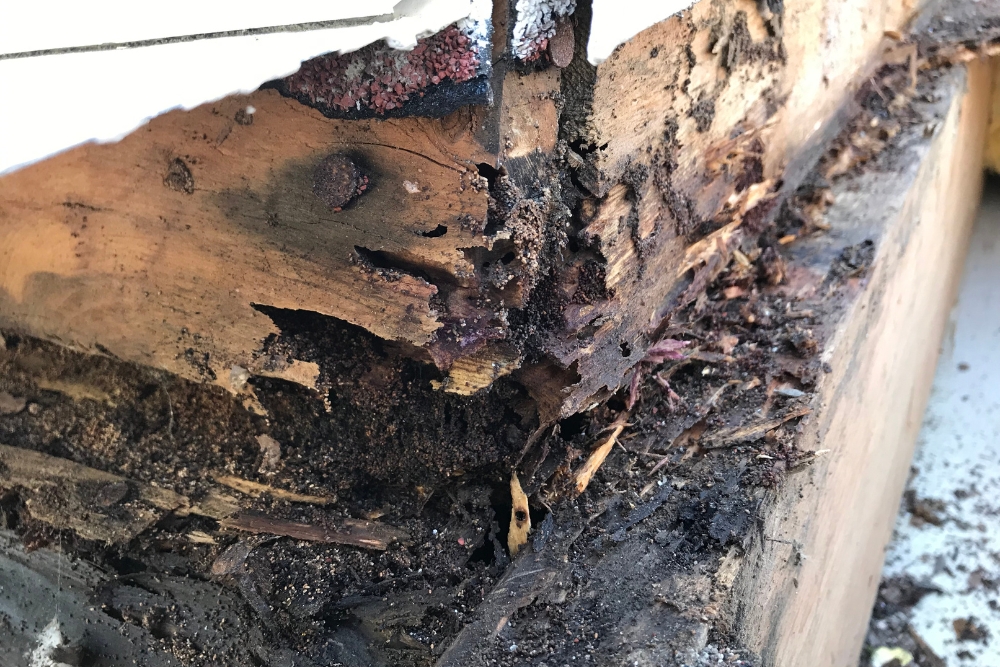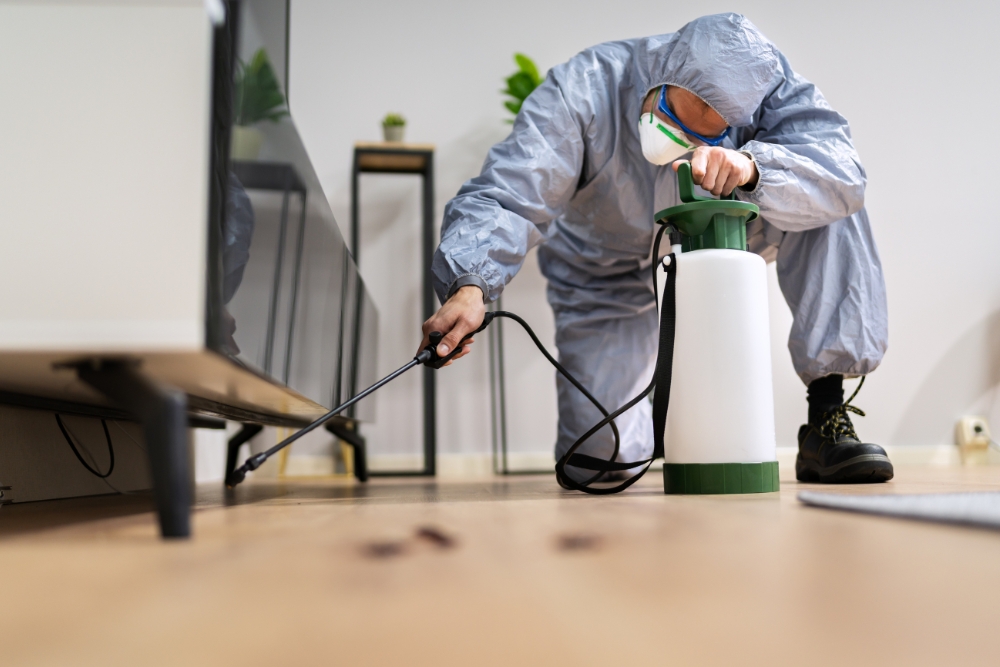Mosquito inspections in our homes are more critical than many of us realise. They go beyond a simple nuisance; they represent a real threat to our health and property. Mosquitoes can spread deadly diseases, cause damage to our homes, and become an unbearable noise nuisance.
To combat these issues, we must understand the signs of a mosquito infestation. These can range from hearing buzzing sounds, noticing bites on our skin, finding areas with standing water like gutters or bird baths where mosquitoes breed, experiencing nighttime itching, or seeing swarms around our properties.
Prevention is key in controlling these pests; this includes regularly removing standing water from around your home, maintaining fly screens on windows and doors to ensure they are free from holes or tears, using insect sprays containing DEET or natural alternatives when outdoors, keeping gardens tidy by removing excess water and trimming vegetation that may harbour mosquitoes.
Additionally, it’s important to check and clean rainwater tanks often to prevent them from becoming breeding grounds for mosquitoes.
Professional mosquito inspections offer an expert solution for situations that seem beyond personal control measures. Professionals bring their knowledge of effective treatment options and long-term prevention strategies that adhere strictly to mosquito control laws and regulations.
Discover how we can protect our homes together!
Key Takeaways
- Regularly remove standing water from your property, like in gutters and bird baths, to stop mosquitoes from breeding.
- Maintain fly screens on windows and doors to keep mosquitoes out of your home, ensuring they’re free from holes or tears.
- Use insect sprays and repellents that contain DEET or natural alternatives when outdoors to protect yourself from mosquito bites.
- Limit the places where mosquitoes can breed in your garden by keeping it tidy, removing excess water, and trimming overgrown vegetation.
- Check and clean rainwater tanks regularly to ensure they are sealed properly and don’t become mosquito breeding grounds.
The Dangers of Mosquito Infestations in Your Home
Mosquito infestations within the confines of your home present a substantial health and safety risk to all occupants. These tiny but dangerous pests are known carriers of a variety of diseases, such as Zika virus, West Nile virus, and malaria, putting your family’s health at risk through their bites.
Beyond the health hazards, mosquitoes can cause property damage by laying eggs in water-filled containers, obstructing drains, or even causing water damage over time. Additionally, the persistent buzzing of mosquitoes is not just a minor annoyance; it can significantly disrupt the peace and comfort of your home environment, leading to sleep disturbances and ongoing discomfort.
Therefore, addressing mosquito infestations quickly and efficiently is crucial to protect both the well-being of your family and the integrity of your property.
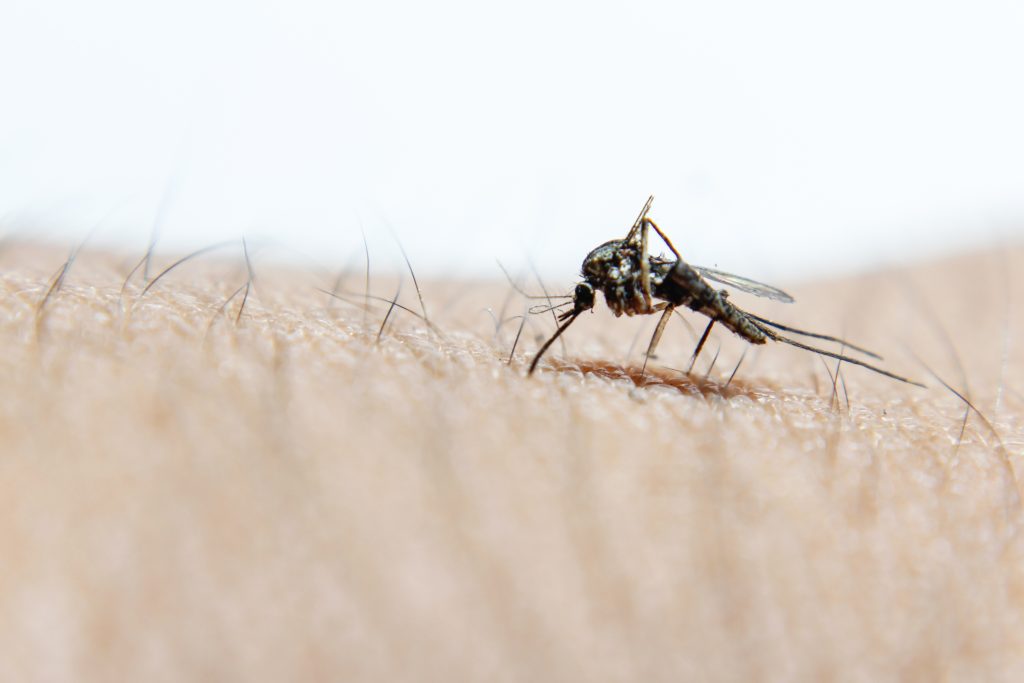
Spread of disease
We all know mosquitoes can be a real bother, but they also pose a serious risk by spreading diseases. These tiny insects can carry and transmit viruses such as Dengue fever, Zika virus, and other vectorborne diseases right into our homes. Our families’ health is at stake if we allow these pests to breed unchecked around our living spaces.
Preventing mosquito breeding in and around the house isn’t just about avoiding itches and irritation; it’s crucial for public health. By eliminating standing water sources and managing mosquito populations effectively, we do our part in controlling the spread of these dangerous illnesses.
It’s up to us to take action now to protect ourselves, our loved ones, and our communities from potential outbreaks. Protecting your home from mosquitoes is protecting your family’s health.
Property damage
Mosquito infestations can lead to property damage, creating a nuisance for homeowners. These pests can cause harm by leaving rust spots on walls and other surfaces due to their excrement.
Additionally, large swarms of mosquitoes can leave a home’s exterior covered in unsightly black smudges from their breeding sites. This property damage affects not only the appearance but also the value of your home.
Moreover, mosquito infestations may result in damage to plants and gardens as they often feed on plant nectar and sap. The presence of these pests could potentially ruin outdoor gatherings and barbecues, making it essential for homeowners to take preventive measures against mosquito infestations.
Noise nuisance
Mosquito infestations can also lead to noise nuisance, especially during the night. The constant buzzing and whining of these pests can disrupt your sleep and irritate you, impacting your overall well-being.
Additionally, the persistent sound can be a sign of an infestation in or near your home. It’s essential to address this issue promptly to restore peace.
To effectively control mosquito noise nuisance, it’s crucial to implement measures that eliminate breeding sites and reduce their presence around your property. By taking proactive steps such as removing standing water, maintaining insect screens, and using repellents, you can significantly minimise the disturbance caused by mosquitoes’ buzzing activity around your home.
Signs of a Mosquito Infestation
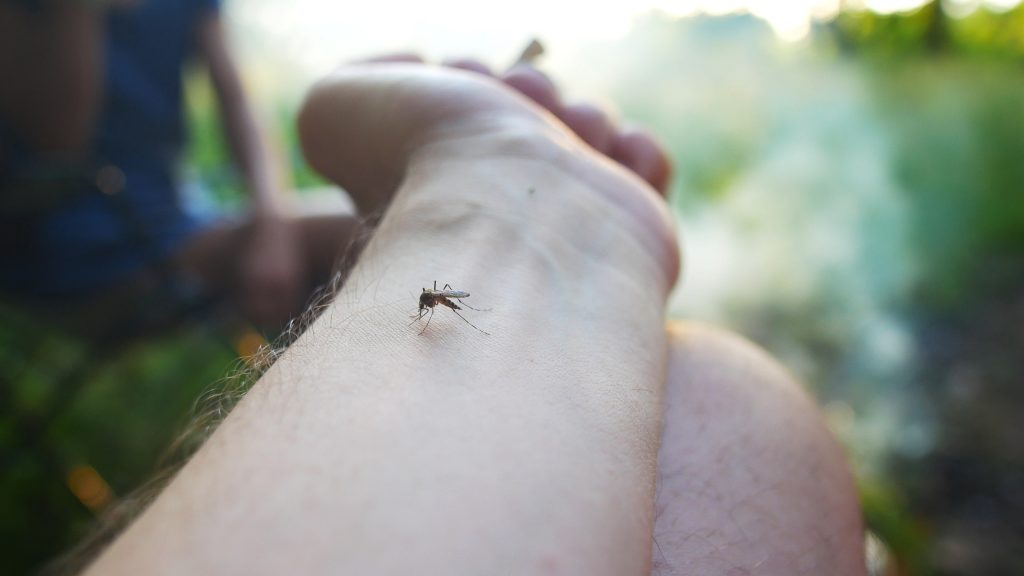
Mosquito infestations often manifest through several unmistakable signs, chief among them the irritating buzzing sounds and the itchy, sometimes painful, bites they leave, particularly noticeable during nighttime when they are most active. The incessant presence of these pests, especially in areas around the home that offer them refuge such as shaded or damp spots, serves as a clear indicator of an infestation.
Furthermore, stagnant water from puddles, plant saucers, or clogged gutters provides an ideal breeding ground for mosquitoes, accelerating their proliferation. Observing larvae, commonly referred to as wrigglers, in standing water or detecting an increase in mosquitoes in areas where water has recently accumulated can further confirm suspicions of an infestation.
Prompt recognition of these signs is crucial for timely intervention to reduce the risk of diseases they might carry and to restore peace and comfort to your living environment.
Sounds of buzzing
The sounds of buzzing could indicate a mosquito infestation in your home, especially if you notice them near windows or doors. It is essential to address this sign promptly to prevent breeding and further infestations.
Regularly inspecting shady areas, and stagnant water, and using insect screens can help reduce this nuisance. Professional inspections may also identify breeding grounds and provide effective treatment options for controlling the mosquito population around your property.
Preventative measures such as eliminating standing water and using natural repellents can significantly reduce the presence of mosquitoes.
Bites on skin
Bites on the skin are a common sign of mosquito infestations in and around the home. These itchy, red bumps can be caused by female mosquitoes feeding on human blood. The presence of these bites indicates that there may be an active population of mosquitoes nearby, making it important to take proactive measures to prevent further bites and potential disease transmission.
Regularly inspecting for bites and taking steps to eliminate breeding sites can help protect your property from these annoying pests.
Eliminating standing water is crucial in preventing mosquito breeding and reducing their presence around your home. Additionally, using insect sprays or natural repellents can help deter mosquitoes from biting you and your family while spending time outdoors.
Presence of food pests
After addressing the issue of mosquito bites on the skin, it’s crucial to be vigilant about the presence of food pests in your home. Insects such as mosquitoes are often drawn to areas where food sources are abundant, including both human and pet food.
Ensuring that all food items are stored in airtight containers can significantly reduce the risk of attracting these pests into your living space and help in controlling mosquito infestations.
Inspectors should pay attention to potential breeding grounds near places where food is stored or prepared. Homeowners can also take proactive measures by regularly cleaning up any spills or crumbs, reducing attractants for mosquitoes and other pesky insects around the house.
Shady areas of the home
Shady areas of the home are ideal breeding spots for mosquitoes. Shrubs, trees, and overgrown vegetation provide cool and damp conditions that mosquitoes thrive in. It’s crucial to regularly trim back foliage and remove any unnecessary shade around the home to reduce mosquito activity.
In addition, consider using landscaping techniques that allow more sunlight into your yard and minimise shaded spots where mosquitoes can breed.
Moreover, dark and humid areas near the home’s exterior create a conducive environment for mosquitoes to lay their eggs. Regularly inspect these spaces – such as under decks, porches, or in crawl spaces – to ensure they remain dry and well-ventilated to deter mosquito breeding.
Standing water
Standing water provides a perfect breeding ground for mosquitoes. To prevent infestations, regularly check and eliminate any stagnant water around your property – including in gutters, bird baths, and flower pots.
Mosquitoes lay their eggs in standing water, so it’s crucial to empty containers or treat them with larvicides to stop these pests from multiplying.
To effectively control mosquitoes at home, pay attention to potential mosquito breeding sites such as ponds, blocked drains, and other sources of still water. By taking proactive measures to remove standing water from your surroundings, you can significantly reduce the risk of mosquito-borne diseases.
Nighttime itching
After taking care of any standing water, it’s essential to address the issue of nighttime itching. If your sleep is being disturbed by constant scratching and discomfort, this could be a sign of mosquito activity around your home.
By properly inspecting your property for potential breeding grounds and addressing them promptly, you can significantly reduce the instances of nighttime itching caused by mosquito bites.
Utilising natural mosquito repellent techniques in addition to other control measures can help protect yourself and your loved ones from these annoying pests.
Inspecting for potential breeding sites such as stagnant water pools or containers is essential. Additionally, ensuring that windows are properly screened will also help prevent mosquitoes from entering your home and causing pesky itchy bites at night.
Visible signs of infestation
Mosquito infestations can leave visible signs in and around your home. Keep an eye out for clusters of mosquito larvae in standing water, such as ponds, bird baths, or clogged gutters.
Look for adult mosquitoes resting on walls or ceilings inside your home, especially during the day. Also, pay attention to any lingering mosquito bites on your skin after spending time outside. And finally, keep an eye out for dead mosquitoes and their tiny eggs near areas with stagnant water.
To inspect for these signs effectively, focus on shaded areas where mosquitoes may seek refuge from sunlight and hot weather. Remember that identifying these visible signs early is crucial to preventing a full-blown infestation.
How to Prevent and Control Mosquito Infestations
Preventing and controlling mosquito infestations within your home and garden involves a multi-faceted approach that begins with the elimination of standing water, where mosquitoes lay their eggs. Ensuring that fly screens on windows and doors are intact and properly maintained can significantly reduce the chances of mosquitoes entering your home.
The application of insect sprays in areas prone to mosquito activity, along with the use of personal repellents, can provide additional layers of protection against these pests. Limiting potential breeding sites in your garden by regularly emptying containers that collect water, ensuring gutters are clear, and covering rainwater tanks to prevent access, are essential steps in mitigating mosquito populations.
By adopting these preventive measures and remaining vigilant about potential breeding grounds, you can effectively reduce the likelihood of mosquito infestations, thereby protecting the health and comfort of your household.
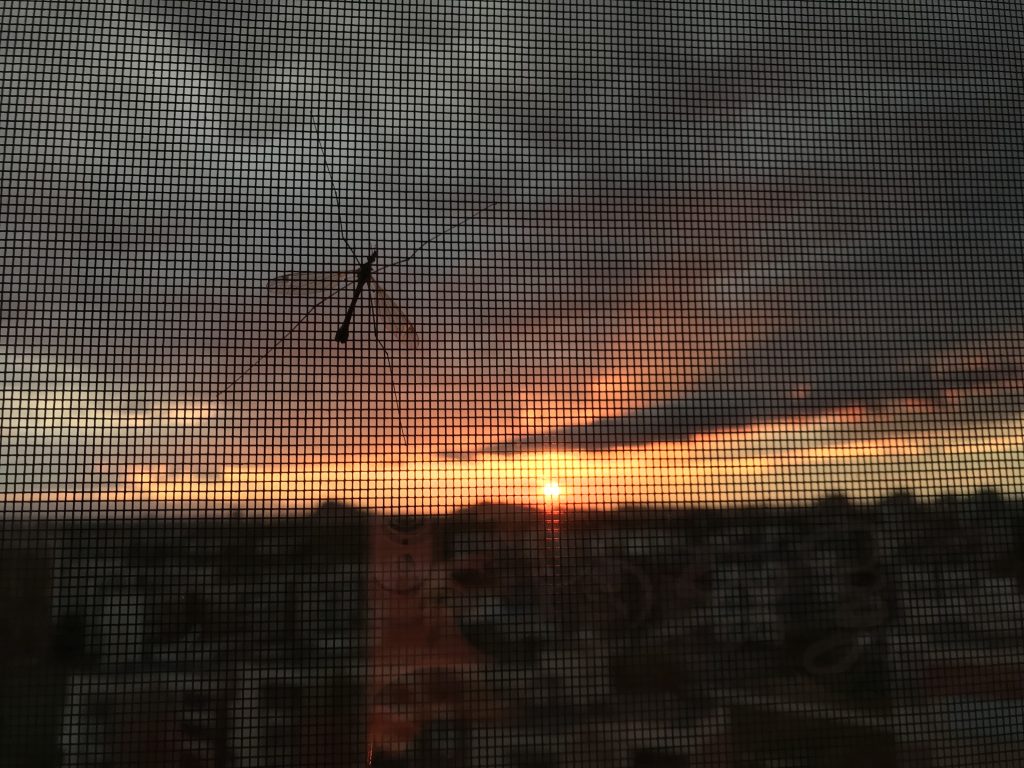
Eliminate standing water
Standing water provides a breeding ground for mosquitoes, increasing the risk of infestation around your property. Regularly check and remove any stagnant water from outdoor containers, gutters, birdbaths, and flower pots to prevent mosquitoes from laying their eggs.
Consider using mosquito dunks or larvicides in standing water that cannot be drained to effectively eliminate potential breeding sites around your home.
By eliminating standing water, we reduce the opportunity for mosquitoes to thrive and protect our homes from potential infestations. Regular maintenance of these areas plays a crucial role in minimising the presence of these disease-carrying pests on our property.
Maintain fly screens
To keep mosquitoes at bay, make sure to maintain fly screens on all doors and windows. This simple but effective measure can help prevent these pesky insects from entering your home, reducing the risk of an infestation and protecting your family from bites.
Regularly check for any tears or holes in the screens, and promptly repair or replace them to ensure they remain fully functional.
Furthermore, regularly cleaning the screens with a mild detergent can prevent debris buildup that may compromise their effectiveness. By maintaining fly screens in good condition, you create a barrier against mosquitoes without compromising ventilation inside your home.
Use insect sprays and repellents
Insect sprays and repellents are effective in keeping mosquitoes at bay. When choosing a spray, look for one that contains DEET, picaridin, or oil of lemon eucalyptus to ensure its effectiveness.
Apply the spray to exposed skin and clothing as directed on the label to protect yourself from mosquito bites while outdoors. Repellents like citronella candles or torches can also be placed around outdoor gathering areas to create a barrier against mosquitoes.
It’s important to use insect sprays and repellents according to the manufacturer’s instructions for maximum effectiveness in repelling mosquitoes. By regularly using these products, homeowners can significantly reduce the presence of mosquitoes within their property.
This proactive approach is key in preventing mosquito infestations and protecting your home from potential hazards.
Limit breeding sites in the garden and yard
To keep mosquitoes at bay, it’s crucial to limit breeding sites in your garden and yard. Remove any standing water from flower pots, bird baths, or clogged gutters – these are prime mosquito hotspots.
Ensure that all outdoor containers are emptied regularly to prevent water accumulation. Consider using gravel or sand in areas where water tends to collect, like under pot trays or walkways near the garden shed.
Regular maintenance of your garden is key to preventing mosquito reproduction. Trim overgrown vegetation and mow the lawn frequently to eliminate potential hiding spots for mosquitoes.
Check and maintain rainwater tanks and storage vessels
Regularly inspect and clean rainwater tanks and storage vessels to prevent mosquito breeding grounds. Remove debris, such as leaves and twigs, from gutters. Ensure that tanks are properly sealed to keep mosquitoes out. Use fine mesh screens on tank inlets and overflows to deny access to egg-laying females.
Implement a maintenance schedule for checking tanks, pipes, and fittings for leaks or damage. Repair any issues promptly to prevent pooling water around the tank area. Regular maintenance is crucial for preventing mosquito infestations in these areas of your property.
Professional Mosquito Inspections and Treatment
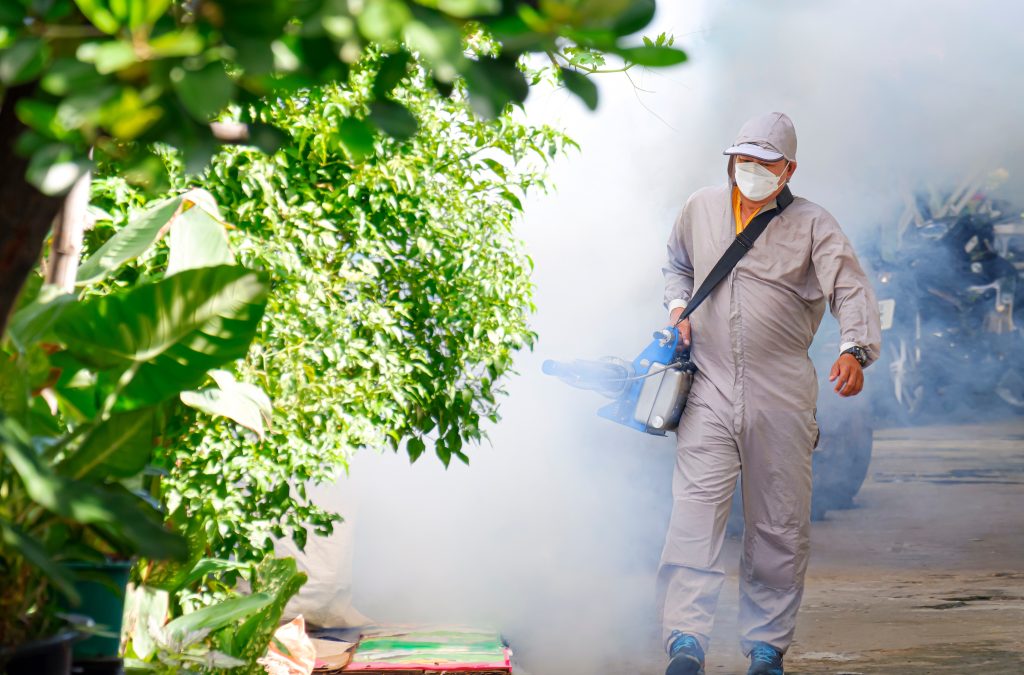
Professional mosquito inspections and treatments offer homeowners a comprehensive solution to combat mosquito infestations, leveraging expert knowledge and targeted strategies. These services begin with a thorough inspection of the property, aiming to identify not just the immediate presence of mosquitoes but also potential breeding sites that could sustain future generations of pests.
Following the inspection, professionals use precise and meticulous treatments designed to not only eliminate existing mosquito populations but also to disrupt their life cycle, preventing re-infestation. Such treatments often include the application of eco-friendly insecticides in critical areas, the use of larvicides in standing water, and recommendations for environmental modifications to make the area less attractive to mosquitoes.
Engaging in professional inspection and treatment services ensures that homeowners can effectively reclaim their homes and yards from the nuisance and health risks posed by mosquitoes, enjoying outdoor spaces with peace of mind.
Benefits of professional inspections
Choosing professional inspections for your home brings several benefits, including:
- Comprehensive Assessment of Infestation: Professional inspectors conduct a thorough examination to identify all potential breeding sites and infestation areas.
- Tailored Treatment Plans: Experts design targeted and effective control strategies based on the specific needs of your property.
- Ensuring Compliance with Regulations: Professionals are well-versed in local laws and regulations regarding pest control, ensuring that treatments are conducted according to the set standards.
- Expertise in Implementing Control Measures: Skilled professionals have the knowledge and experience to apply appropriate treatment methods effectively.
- Long-Term Prevention Strategies: They guide preventing future infestations, offering valuable advice on maintenance and habitat modification.
Trust our expertise for a holistic approach towards mosquito control at your property.
Effective treatment options
When combating mosquito infestations, consider utilising various effective treatment options to protect your home. Applying insecticide sprays to breeding sites and surrounding areas can significantly reduce mosquito populations.
Additionally, using larvicides in stagnant water sources prevents larvae from developing into adult mosquitoes. These proactive measures help maintain a pest-free environment around your property.
Regularly engaging professional pest management services ensures comprehensive inspections and tailored treatment plans to address specific infestation issues.
Long-term prevention strategies
To prevent mosquito infestations in the long term, regularly inspect your property for any potential breeding sites. Keep an eye out for stagnant water in gutters, containers, and other outdoor areas.
Additionally, ensure that all screens on windows and doors are tight-fitting to prevent mosquitoes from entering your home. Consider using larvicides or insect growth regulators in standing water around your property to disrupt the mosquito life cycle and reduce future infestations.
Regular maintenance of vegetation can also limit resting areas for adult mosquitoes and reduce their presence around your home.
Mosquito control laws and regulations
Mosquito control laws and regulations in Australia aim to protect public health by managing mosquito populations and reducing the risk of disease transmission. The laws require homeowners, building inspectors, and pest inspectors to take effective measures to prevent mosquito breeding on their properties.
These measures include eliminating standing water, maintaining fly screens, using insect sprays and repellents, and regularly inspecting and maintaining rainwater tanks and storage vessels.
Compliance with these regulations helps reduce the prevalence of mosquitoes around residential areas, contributing to a safer living environment for all.
Call Us!
Safeguarding your home from mosquito infestations is crucial for a safe and healthy living environment. We’ve explored practical strategies to identify, prevent, and control mosquito infestations, emphasising their ease of implementation and effectiveness.
How will you apply these tips to protect your home and loved ones from the dangers of mosquitoes? By implementing these measures, you’ll create a significant impact on reducing mosquito presence in and around your property.
For further guidance or services tailored towards professional inspections and treatment options, consider seeking assistance from pest inspectors or building inspectors. Taking action now will not only enhance your home safety but also contribute to the overall well-being of your household.
